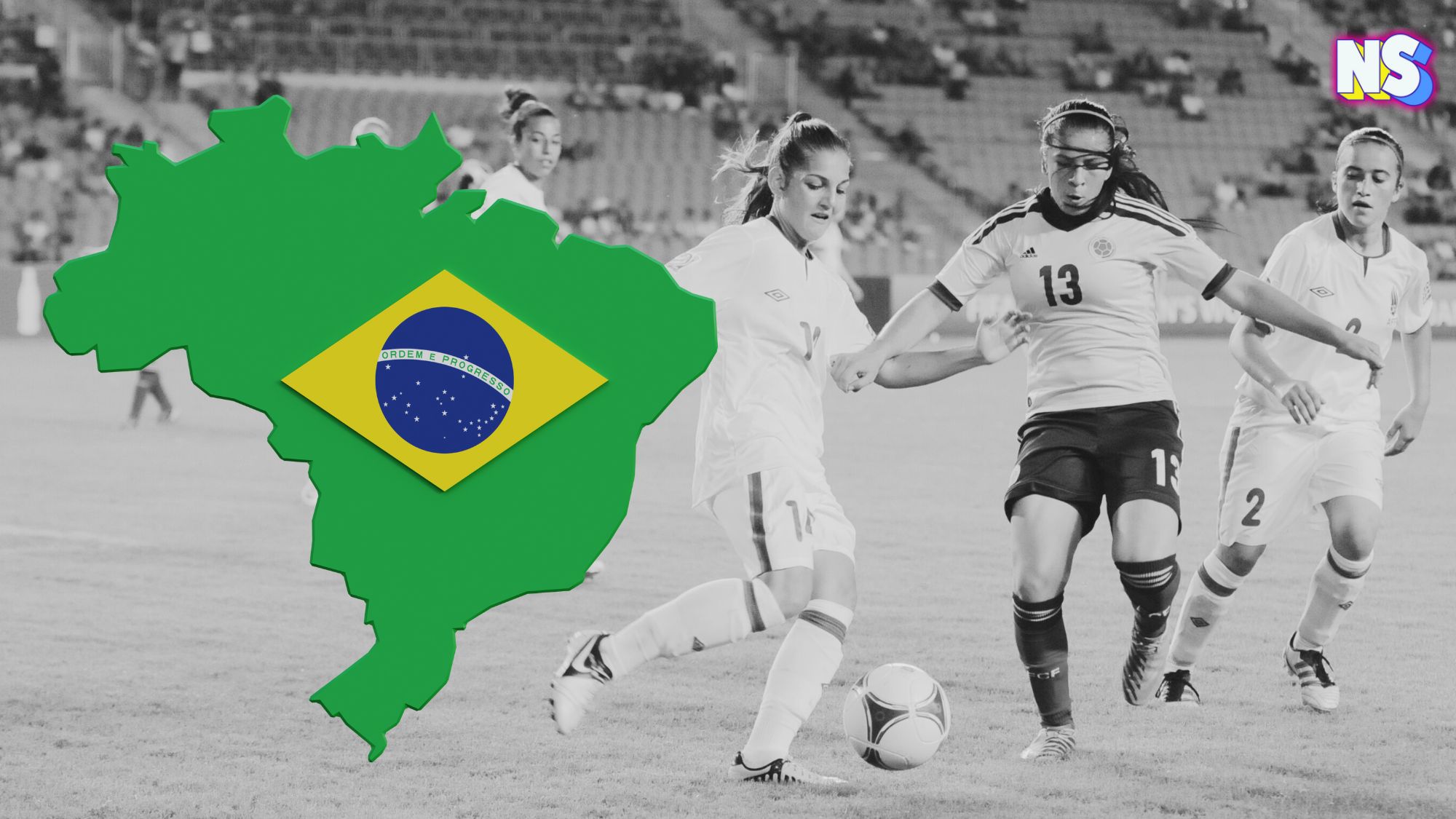Here’s a question for you: How do you go from literally banning women from playing soccer to hosting the FIFA Women’s World Cup? If you’re Brazil, the answer is simple: Passion, perseverance, and an endless supply of jaw-dropping talent.
Yes, you read that right. In case you missed it, Brazil will host the 2027 FIFA Women’s World Cup, and it’s a historic moment not just for the country, but for all of Latin America. Despite being the spiritual home of soccer, Latin America has never hosted the Women’s World Cup. And in Brazil, the irony runs deep. This is the same country where, for 40 years, women and girls were banned from playing the sport. Why? Because apparently, kicking a soccer ball was considered a threat to their ability to have children. (Science has entered the chat, and Brazil took note.)
Now, the women’s national team has gone from banned to badass, earning medals, breaking records, and inspiring a new generation of players. As Brazil gears up to welcome the world’s best female athletes, one question lingers: Will this historic tournament finally deliver Brazil its first Women’s World Cup win?
@wearedrafted Congratulations to Brazil 🇧🇷 #womeninsports #womenssportsmatter #fifwomensworldcup
♬ original sound – Latinas in Sports
FIFA Women’s World Cup Makes History
In 2027, the FIFA Women’s World Cup will be held in Brazil, which is even more fitting given soccer is the South American country’s biggest sport as well. Having birthed legends like Pelé, Neymar, and Marta, the “Island of the True Cross” will finally have its moment hosting the women’s championship in its nearly 10-year history.
The dates of the competition, announced by FIFA president Giovanni Infantino just last month, will be between June 24 and July 25.
@livinthegame A summer trip to Brazil?? Yes please🤩🇧🇷 #worldcup #womensworldcup #brazil #footballtiktok #womensfootball
♬ 오리지널 사운드 – 𝘀𝗰 – 𝘀𝗰
Social Media Reacts to Women’s World Cup 2027: It’s About Time
Many on social media believe the issuance of a Latin American country as the host is (understandably) overdue. Some are also hopeful that Brazil’s team will get its first World Cup win right at home.
“As a Brazilian, really excited for the opportunity, not only to see our own national team, but players from other countries that I usually follow on the other leagues,” says one user on Reddit. “I hope people show up for all the games, though, I believe the majority of the people showing up will be doing that exclusively to support Brazil.”
Under the official announcement post on the FIFA Women’s World Cup Instagram account, one user cheekily commented in Portuguese: “I have no doubt that the women will win their first world title in this cup, leaving the men’s national team alone in their stink.” A true feminist, indeed.
Players and Fans Celebrate the Big News
Amid the celebrations from the public, players on the women’s Brazilian team are also rejoicing.
As Tarcianne Lima, a defender on the team, tells FIFA, “When I heard the news, I was jumping for joy. This will be a one-of-a-kind event. It will generate an enormous amount of happiness for all those who love and follow the sport, particularly for the Brazilian fans.”
RELATED POST: Lionel Messi Made History, and It’s a Big Deal for Latinos Everywhere
Not only is this monumental news for the South American country in the context of the Women’s World Cup, but it holds significant weight given that women weren’t even allowed to play the sport professionally until 1981. It was first banned in 1941 under then-president Getúlio Vargas, with many in society at the time citing the idea that playing soccer would inhibit women and girls’ childbearing abilities.
@foxsoccer 3 years ago today, Marta delivered one of the most inspirational speeches in soccer history after Brazil’s exit in the FIFA Women’s World Cup 🇧🇷
♬ original sound – FOXSoccer
Brazilian Women in Soccer: From Banned to Ballon d’Or
Now, Brazil’s female team is one of the biggest contenders in the world for the championship – as evidenced by the shiny silver medal they took home in last year’s Summer Olympics. Brazil also had a nominee for the Women’s Ballon d’Or last year – Gabi Porthillo – a fierce footballer who helped her country rise to fame in the global arena.
The odds, however, are certainly stacked against Brazil and other Latin American countries competing – namely against the ferocious U.S. women’s soccer team, who have dominated the FIFA Women’s World Cup by winning four out of the nine previous championships. Those high stakes are compounded by the fact that no Latin American country has ever won the women’s championship, and for Brazil in particular, the retirement of Marta Vieira da Silva after the Olympics.
Passion, Resilience, and the Latin American Spirit
Brazil may or may not be the underdog, along with other strong Latin American teams playing, but one thing’s for sure: their passion and determination on the field will make them formidable contenders, embodying that exact resilience that defines the Latin American spirit.
Remember, Brazil once banned women from playing soccer, claiming it was “unfit” for them. Fast forward to 2027, and the same country is gearing up to host the FIFA Women’s World Cup, with its players ready to show the world what resilience and passion look like on the field. So, here’s the real question: How poetic would it be if Brazil, once excluded from the game, now rewrites history by winning it all on home turf?





